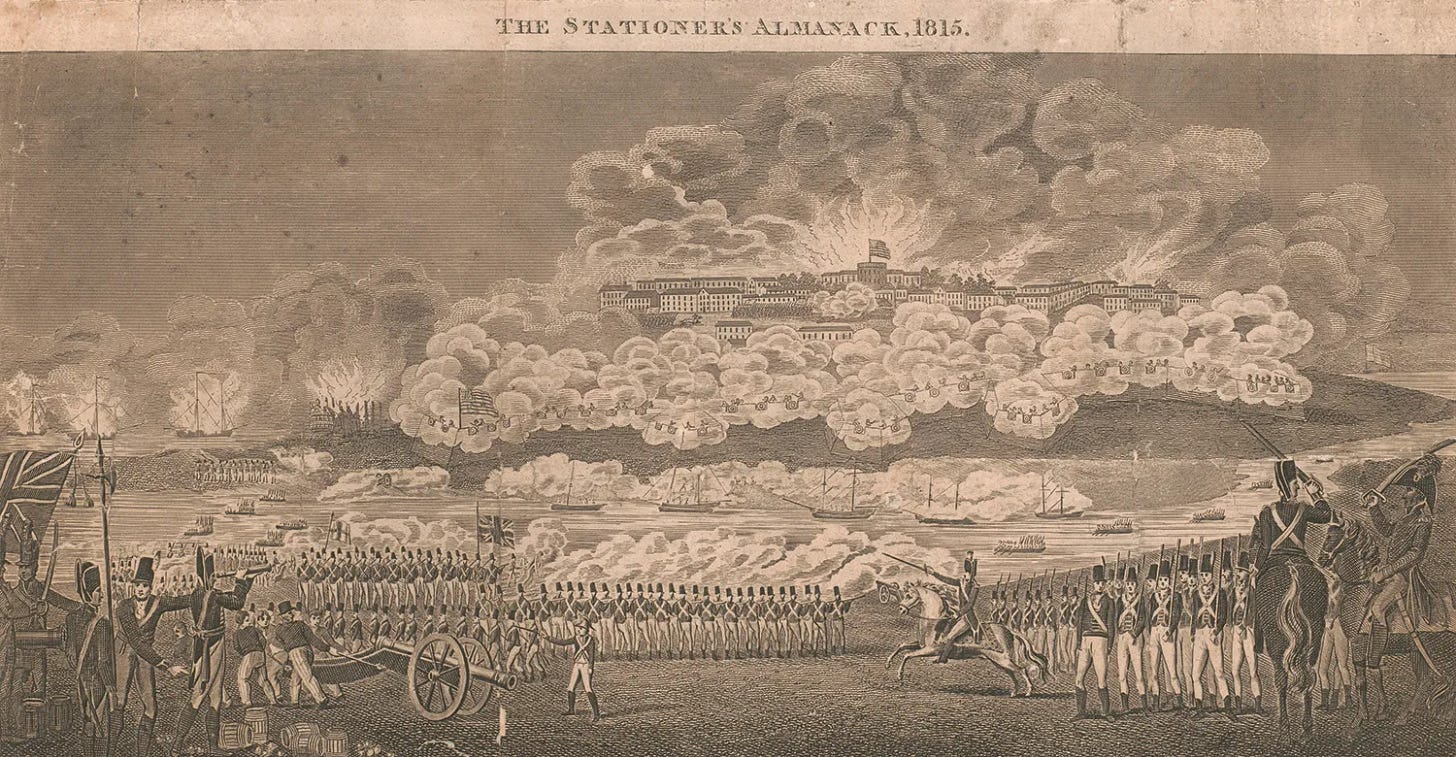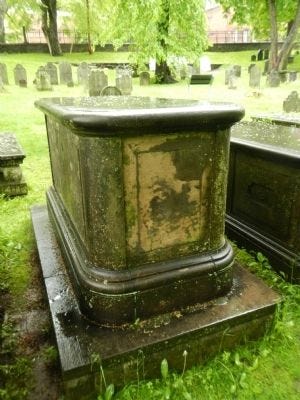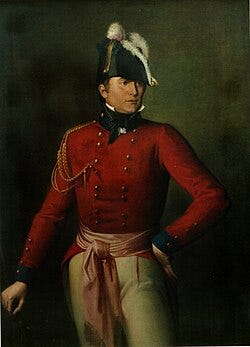Robert Ross- body preserved in 129 gallons of Jamaican Rum
Ross led burning of Library of Congress
On Aug. 24, 1814, during the War of 1812, British troops set fire to government buildings in Washington, D.C. The Library’s 3,000 or so reference books, then housed in an unfinished U.S. Capitol, provided ready fuel for the fire.1
Major-Général Robert Ross 1766-1814
After successfully fighting in the Napoleonic War, Ross was sent to North America where, on August 24, 1814, he personally led British troops in the capture of Washington D.C. during the War of 1812. He ordered the burning of public property, including the Capitol Building and the White House. 2
Three weeks later he led troops to attack the city of Baltimore, Maryland. On September 12, they landed at North Point, about twelve miles away from the city. While British ships prepared to attack Fort McHenry he began to advance his soldiers toward the city.
Following capture of the White House, General Ross accepted an American lawyer, Francis Scott Key, onto his ship and granted Key's request for the release of some American prisoners, but Key was kept prisoner until the battle was over. Key watched the bombardment of Baltimore's Fort McHenry and when he saw the American flag flying in the morning wrote the poem, Defence of Fort M'Henry which became the lyrics to the Star Spangled Banner.
While moving toward Baltimore, the British were surprised by American forces and their leader was killed by a sniper's bullet.
His body was preserved in one hundred twenty-nine gallons of Jamaican Rum on a British ship, so it could be returned to his native Ireland for burial. However, preparations for the Battle of New Orleans prevented the British from returning to their homes, so on September 29, his remains were interred in the Old Burying Ground Halifax, Halifax County, Nova Scotia, Canada with full military honors.
Video:
Video: Man who burned down White House buried in Halifax

Wendi A. Maloney. Forged in Fire: Disaster played a key role in shaping the Library. Library of Congress Magazine. March/April 2025.
McCavitt, John, and Christopher T. George. The Man Who Captured Washington: Major General Robert Ross and the War of 1812. Norman: University of Oklahoma Press, 2016.






A good ol' fashioned pickling...
I grew up in Halifax where I sometimes visited General Ross's grave.
My great grandfather was a Ross.
Before burning the White House, Ross and his men enjoyed a meal that had been prepared for the President and his staff before they ran away. The table was set with fine china, silverware, and included roast meats, vegetables, desserts, and fine wine. The supper became a point of national humiliation for Americans, and was widely reported in newspapers of the time.
Dolley Madison’s letters tell the story of her hasty evacuation, during which she famously saved a portrait of George Washington by Gilbert Stuart! Hard to imagine the Biden's or the Trump's doing that!
Ross then went on to burn: the Capitol Building, Navy Yard, the Treasury, War Department and State Department Buildings, and the office of the National Intelligencer - a pro-American newspaper that had criticized the British.
"The body of the gallant and much lamented Major General Ross was interred in St. Paul’s Church yard on Thursday last. The Corpse left the Flagship precisely at 3 o’clock under a discharge of half-minute guns and arrived at the King’s Wharf where it was received by the Grenadier Company of the 64th Regiment and followed to the grave by all the principal Naval and Military officers and a large number of inhabitants.” - Acadian Recorder, October 1, 1814